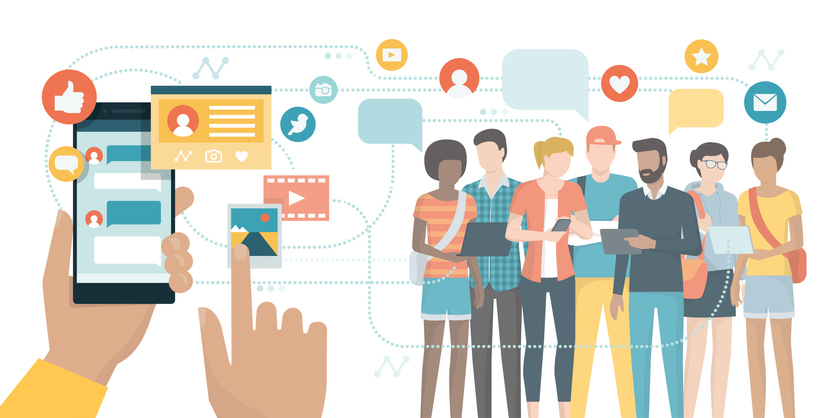
Social media should play a bigger part in public health crisis planning, according to a recent analysis from digital health consulting firm Creation Healthcare.
The analysis explored the crucial role that Twitter and other social media platforms played when the app for Abbott’s FreeStyle Libre system crashed earlier this month for iOS users the U.K.
Abbott’s FreeStyle Libre device is a continuous glucose monitoring system that allows people with diabetes to conveniently track their blood glucose levels. It eliminates the need for traditional fingerstick tests by using a small sensor on the arm, which users scan with a smartphone app to obtain real-time glucose readings.
From July 12-17, the app that FreeStyle Libre users need to obtain their glucose readings stopped working for some U.K. users. The U.K.’s National Health Service (NHS) estimates that more than 200,000 people across the nation use glucose monitoring sensors, but an accurate number of individuals affected by Abbott’s app outage has not been made available.
Representatives for Abbott’s Europe and U.S. divisions did not respond to MedCity News’ requests for comment in time for this article’s publication.
During the malfunction, Abbott explained that the issue arose when it released an update for the app, which was meant to get rid of the need for manual scanning of the arm sensor. The update was intended to enable continuous transmission of data from the device to the app — a feature that DexCom’s continuous glucose monitor already offers.
However, some iPhone users in the U.K. experienced problems with the update. For many of them, the app ceased to function, resulting in an inability to monitor their blood sugar levels.
Many people affected by the crash turned to social media to figure out how to best manage their diabetes, Creation Healthcare’s analysis pointed out. The analysis looked at 206 social media posts generated by 104 doctors from July 12-18. These posts are part of a wider patient-led conversation — the app’s crash led to a social media discussion comprising 4,040 posts from 3,215 authors, the analysts noted.
Healthcare professionals were actively disseminating helpful information to FreeStyle Libre users on social media during the crash, as was Abbott, the analysis showed. One of the most prominent voices was Partha Kar, who is a national advisor to the NHS for diabetes care. He posted about the topic more than 25 times across Twitter, Instagram and LinkedIn.
Further information regards #Libre2 and #Freestyle #LibreLink App -as it switches to a #CGM via @FreeStyleDiabet
Apology from @AbbottNews noted- with @MHRAgovuk notified
Information to cascade to those using this device
Thank you- RT etc appreciated #gbdoc pic.twitter.com/sqOPFoCKgE
— Partha S Kar 🇮🇳🇬🇧🏏🎥 (@parthaskar) July 15, 2023
Other healthcare professionals, such as nurses and doctors who specialize in diabetes, took to social media as well, the analysis pointed out. They answered patients’ questions about how to monitor their blood sugar levels during the crash, and encouraged patients by reminding them that Abbott was planning to fix the issue promptly. These healthcare workers were also instrumental in informing patients when Abbott resolved the issue on July 17.
Re-install the app from your previous App Store purchases. It’s been temporarily removed from the App Store to fix glitches.
— Dr Anna Dover (@dr_annarachel) July 14, 2023
Pretty amateur from @FreeStyleDiabet in relation to app update. Workarounds are never good at the start! I know only iOS in U.K. affected but how will this look if app updates affect hybrid closed loop users in near future. @DiabetesUK @ABCDiab
— Sandeep Thekkepat (@doctorinsulin) July 15, 2023
“The findings of this analysis are very revealing. They show how patients are increasingly using more innovative ways to communicate with doctors, pharmacists and other experts, including via social media and online forums,” Mary Kangley, a consultant at Creation Healthcare, told MedCity News. “Healthcare providers and pharmaceutical manufacturers need to respond to this growing need by adapting their crisis response and patient engagement strategies accordingly.”
Photo: elenabs, Getty Images



















